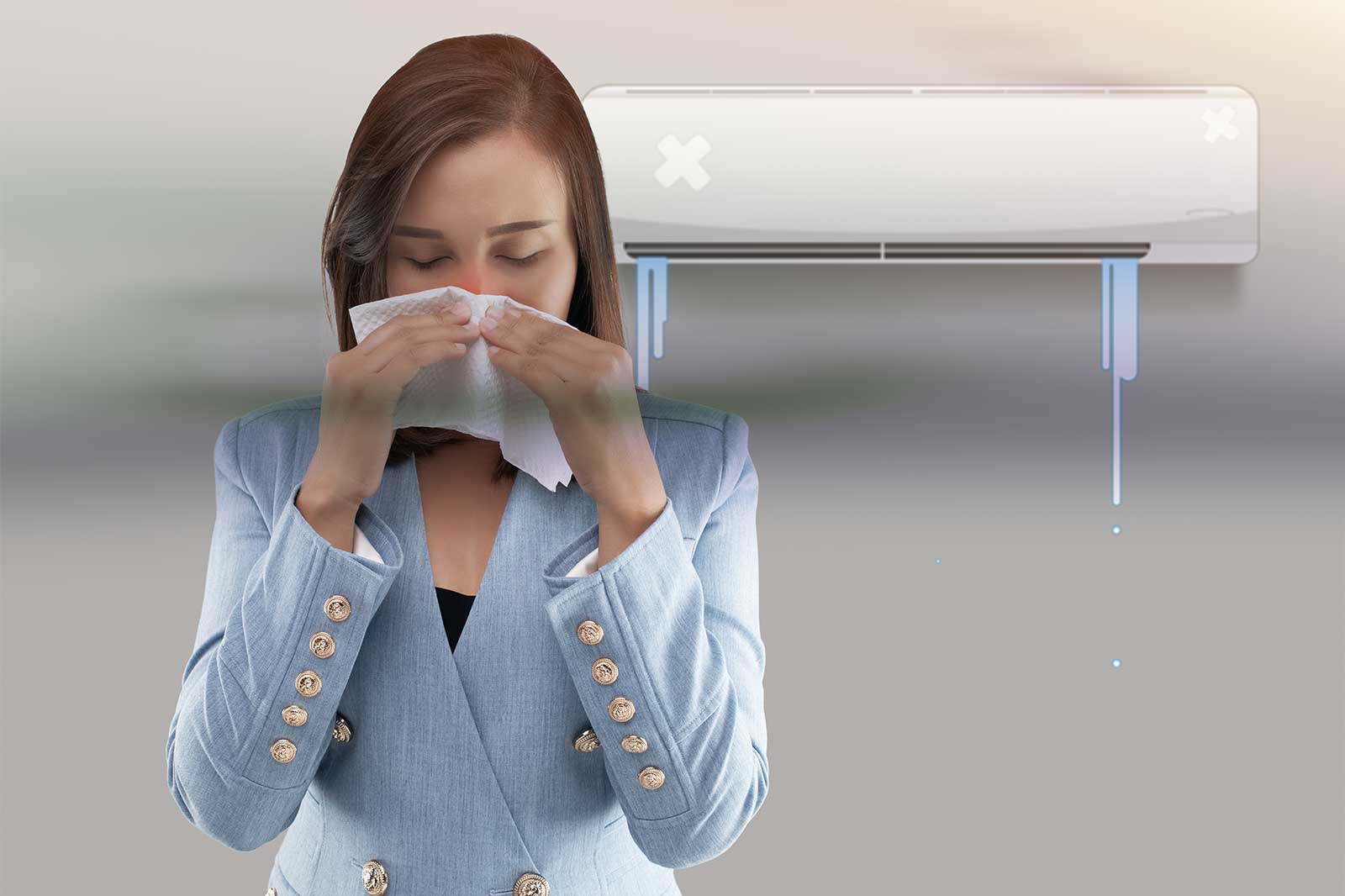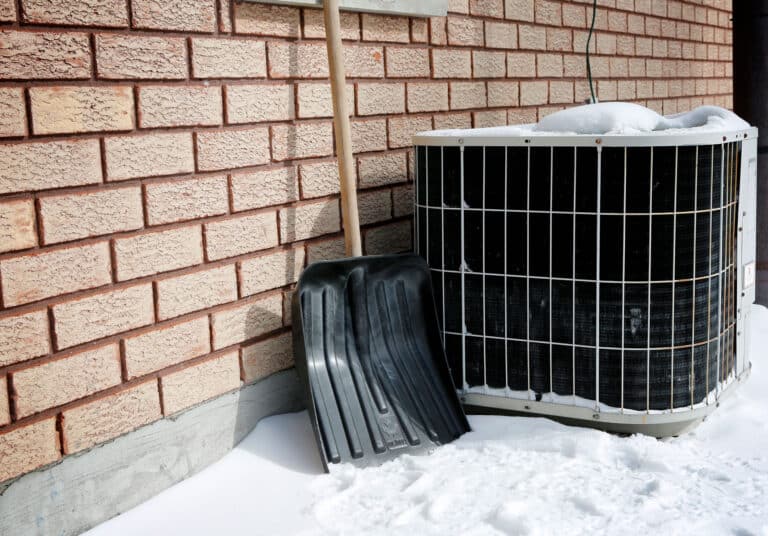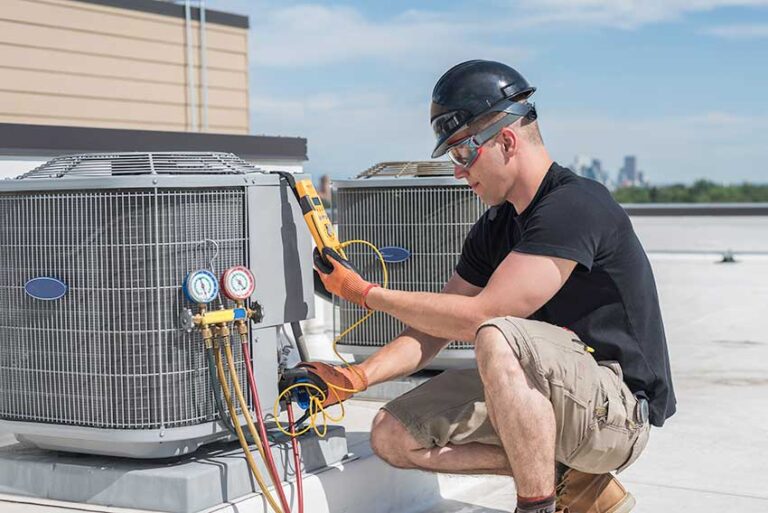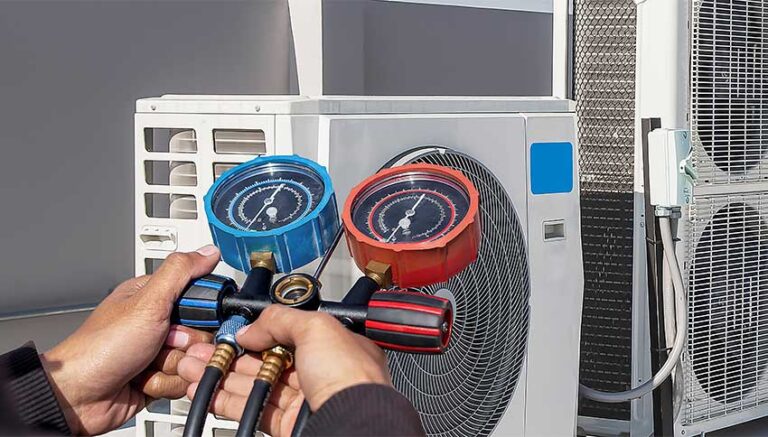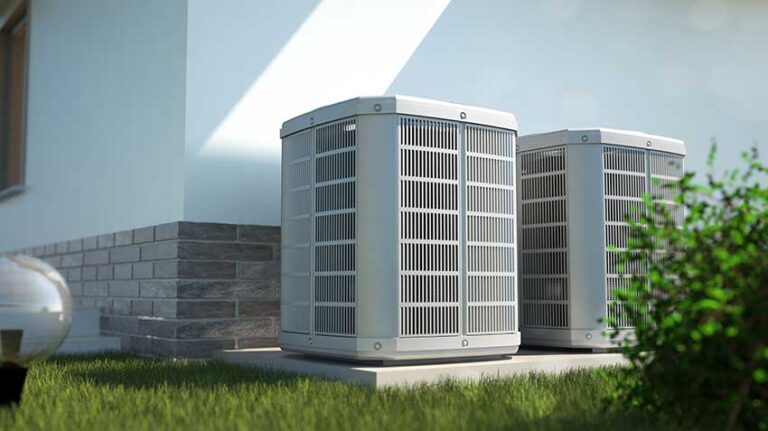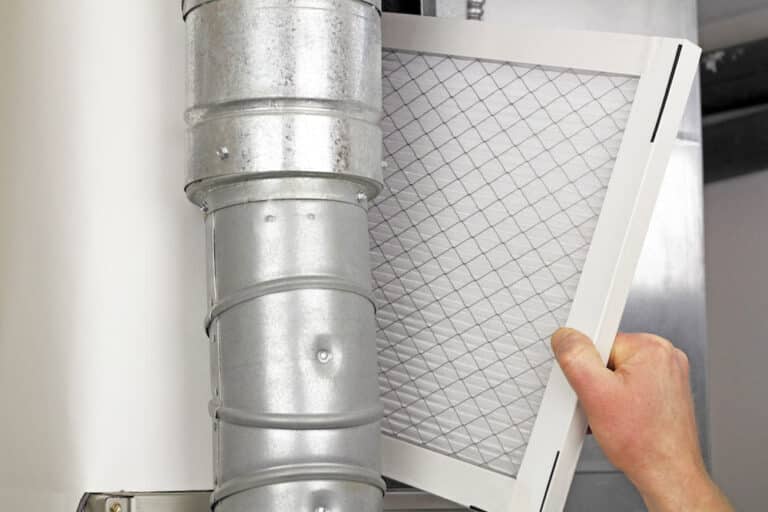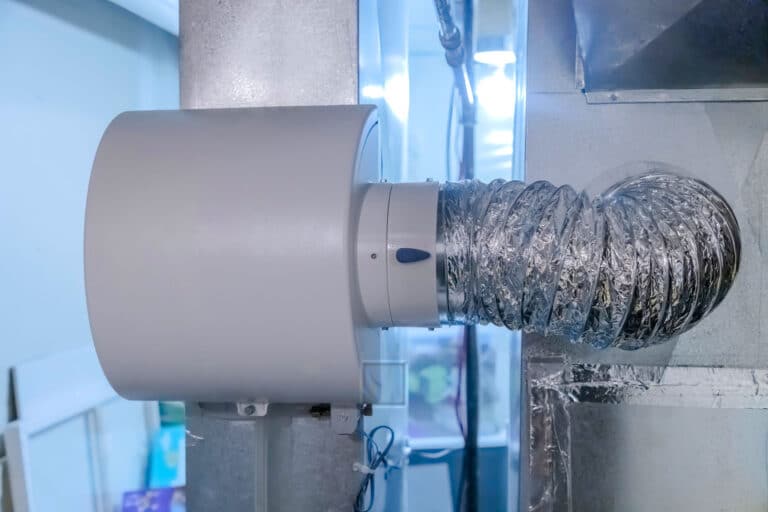Can Air Conditioning Make You Sick? What You Need to Know
Have you ever suffered from allergy-like symptoms after sitting in an air-conditioned room? If yes, then the cold from the air conditioning might be making you sick.
Have you ever suffered from allergy-like symptoms after sitting in an air-conditioned room? If so, then the cold from the air conditioning might be making you sick. The good news is there’s no need to worry about getting sick from AC. You can avoid catching a cold with just a few maintenance appointments from an HVAC contractor.
So, can air conditioning make you sick? Continue reading to discover more about the causes of AC illness and the steps you can take to protect yourself and your family.
Air Conditioner Sickness Symptoms: What It Does to Your Body
During summers, air conditioners act as companions when the temperature outside is almost intolerable. However, spending too much time in the AC may lead to certain health problems, often leaving individuals with some burning questions like, “Can air conditioning make you dizzy?,” or “Can you get a cold from the AC?”
Without further ado, let’s look at the most common air conditioning sickness symptoms you should worry about.
Visible Mold
One of the most common side effects of air conditioners is providing hospitable places for mold to grow. Mold spores have the potential to become airborne and spread across the environment along with the conditioned air. If you notice any obvious signs on your walls, vents, or around any element of your HVAC system, immediately contact a specialist to prevent further infestation.
Breathing or Respiratory Issues
When it comes to the most common side effects of sleeping in air conditioning, breathing and respiratory problems are at the top of that list. This issue mostly arises when the AC, particularly its air filter, is not cleaned or replaced as required, making space for dirt and bacteria to get captured. Therefore, you must clean the air filters every 250 hours of use and replace them every three months.
Cold or Allergy-Like Symptoms
Suppose you start to experience allergy-like symptoms (sore throat, cold, and cough) while sitting underneath an air conditioner, but these symptoms go away as soon as you switch off the AC. In this case, it alludes to the possibility of air conditioning illness. But can you get a cold from air conditioning? Well, believe it or not, moldy air ducts are a potential cause of illnesses and a good sign that your AC needs to be serviced.
Dry, Flaky, or Itchy Skin
If you experience dry, flaky, or itchy skin, your skin might be developing these issues due to the air conditioner since it removes moisture from the air within the room. Additionally, if you leave your AC running for an extended period, the humidity may drop to low levels. Therefore, it is advised that the vanes be kept facing upwards so that the cold air does not come into direct contact with the skin.
Irritated or Dry Eyes
If you’re still wondering can cold air make you sick or not, note that the humidity levels drop when the AC is used, which increases the chances of becoming sick. The decreased humidity often causes the tears to evaporate before they can fall from the eyes, making them inflamed or dry. Nevertheless, individuals with dry eye syndrome should avoid sitting in an air-conditioned room for an extended period.
Dehydration
Did you know the process of dehumidification that you use to maintain a comfortable temperature in your room ultimately results in a very low moisture count inside? Yes, the low humidity level speeds up the process by which your body loses water via evaporation. Because of this, when the system temperature is set extremely low, you feel cold from air conditioning and ought to drink water.
Prolonged Headaches and Dizziness
Thump, thump, thump—an excruciating headache can spoil anyone’s evening, and the culprit may be your home’s air conditioner. You may have observed that when you remain seated in a room with AC for an extended period, you begin to experience symptoms such as headaches and dizziness. This may be due to the fact that the continuous removal of moisture from the air causes dehydration, which results in headaches.
Increased Blood Pressure
Still wondering “why does air conditioner make me cough” or why this kind of environment causes an increase in blood pressure? Look no further; we have the answer to this. Scientifically speaking, the temperature of the environment has a direct impact on both blood pressure and general human health. The tiny arteries serve to limit the loss of body heat so that the body’s temperature may be maintained.
According to a study conducted by the University of Central London, an increase in systolic blood pressure of 0.48 mm Hg and diastolic blood pressure of 0.45 mm Hg were related to a temperature drop of one degree in the indoor environment. People with hypertension should steer clear of keeping the thermostat very low and instead try to bring the temperature to a moderately bearable level.
Feeling Tired All the Time
If you are sitting in an environment that is too cold for your body, your body will use energy to warm itself up—causing your temperature to drop. Additionally, the cold air may also cause your muscles to become tight, which can contribute to a feeling of exhaustion. Thus, if you want to feel better, go for a stroll in the open air.
Heat Intolerance
If you’re still wondering, “Can central air make you sick?” the answer is, unfortunately, yes. No one likes going outside when the temperature is blisteringly hot, but if you’ve reached the point where you can no longer tolerate even moderate levels of warmth, you’ve developed a heat intolerance. Use a fan to prevent yourself becoming more reliant on a regulated indoor environment.
What Can I Do to Avoid Getting Sick from Air Conditioner?
Here’s how you can avoid the symptoms mentioned above.
Remove Mold from Your Home or Office
When it comes to protecting yourself from air conditioning illness, the first step is to prevent your home and place of business from any present mold, mildew, or other allergens. Once done, the next step is to eliminate the source of the moisture to prevent any future mold or mildew. Moving forward, the actual air conditioning machine should be the next focus of your attention.
Schedule Regular Maintenance for Your Air Conditioner
Next, regularly maintaining your heating, ventilation, and air conditioning system is the most effective way to protect yourself and your family from getting sick from air conditioner. Scheduling regular maintenance checkups with an HVAC contractor will help you tackle any leakages or early signs of mold development. In addition, you must routinely clean your air filters and ducts to prevent corrosion.
Set a Comfortable Temperature
Reduce the air conditioner’s temperature if you feel fatigued or suffer from headaches or muscles and joint pain. The setting that your AC is set to should be at or slightly above room temperature. The temperature inside your house or workplace shouldn’t be drastically different from the temperature outdoors; rather, it should be noticeably colder and cozier than the environment outside.
So there you have it: answers to the most searched questions on the web.
Can AC Make You Sick? Yes! What to Do Next? Get in Touch with the Pros
Can AC make you sick? Yes, but this doesn’t mean you should just sit there and do nothing. Now that you know the potential symptoms of air conditioning illness, you can take preventative actions to protect yourself against them. To summarize, if you think an unmaintained or neglected AC unit may be the culprit of your sickness, contact Blue Valley Heating and Cooling today. We will be more than happy to clean your AC and discuss the possibility of scheduling regular maintenance.
For any inquiries, questions, or comments, get in touch today!

